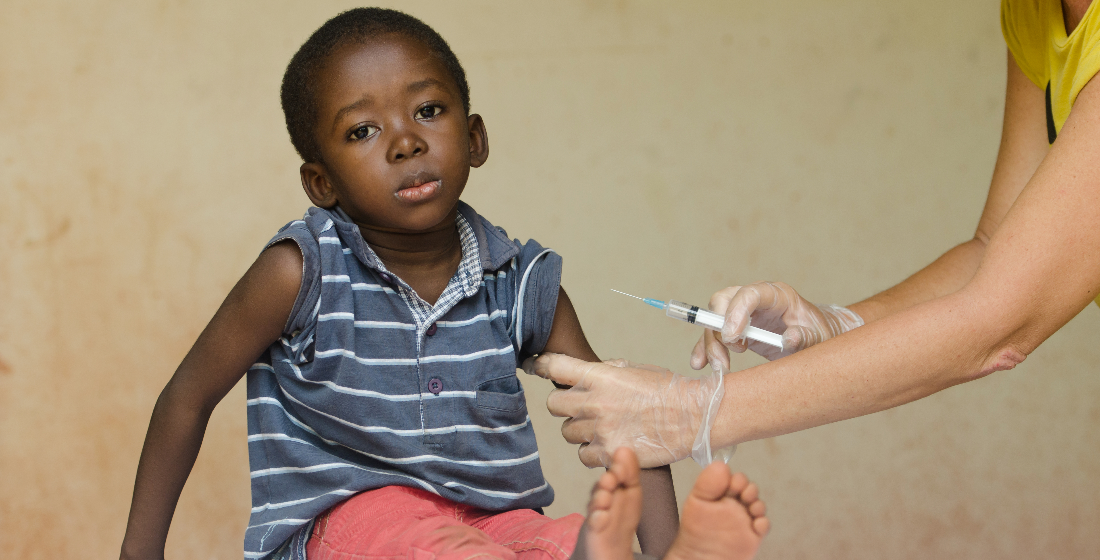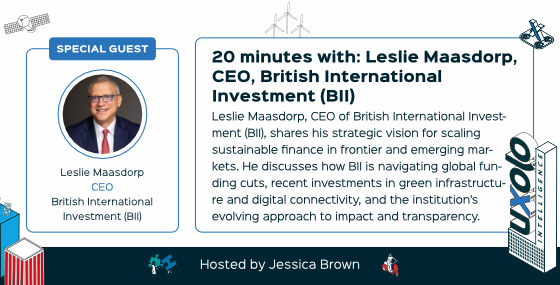New impact fund to address ‘systemic underfunding’ of public health research
Adjuvant’s $300 million fund has assembled a wide range of development financiers and impact investors to finance new technologies that can combat public health crises like the Covid pandemic.

New York-based investment firm Adjuvant Capital recently announced an oversubscribed $300 million fund focused on accelerating the development of medical innovations for historically overlooked public health challenges. Originally launched in 2019, Adjuvant's debut fund has drawn in a wide array of development finance institutions (DFIs) and impact investors; promising new technologies for health issues that the venture capital industry has largely ignored.
The firm has already backed 14 companies developing technologies for high-impact indications ranging from rare conditions such as melioidosis to widespread global emergencies like Covid-19. Each investment includes a binding commitment to make any successfully commercialised products broadly accessible to underserved populations in low and middle-income countries.
“Billions of people around the world live under constant assault from diseases like malaria, shigella, hookworm, tuberculosis, and Lassa fever, yet Wall Street and Silicon Valley typically pay little attention to these widespread challenges,” Glenn Rockman, Adjuvant’s managing partner, said at the launch. “As viruses like Ebola, Zika, and SARS-CoV-2 have clearly demonstrated, wealthy countries are vulnerable to these pathogens as well. Our new fund will finance cutting-edge research so we are better prepared for threats old and new alike, with the ultimate goal of saving or improving millions of lives by bringing urgently needed drugs, vaccines, diagnostics, and medical devices to market.”
Increasing collaboration between DFIs and impact investors
To finance these ambitious goals, Adjuvant has amassed a broad coalition of conventional and catalytic investors, many of whom are also contributing scientific advice and emerging markets expertise. These investors include traditional asset managers, multinational bio-pharmaceutical companies, DFIs, and some of the world’s largest foundations.
Among the names are the Bill & Melinda Gates Foundation, Anthos Fund & Asset Management, Beacon Pointe Advisors, CDC Group, the Children’s Investment Fund Foundation, Dalio Philanthropies, the Doris Duke Charitable Foundation, ELMA Investments, the Ford Foundation, the International Finance Corporation (IFC), the John D and Catherine T MacArthur Foundation, Global Health Investment Corporation (with funding from the German government through KfW), Laerdal Million Lives Fund, Merck, Novartis, RockCreek, Sonanz, and The Sorenson Impact Foundation.
The make-up of the group is indicative of an increasing collaboration between DFIs and impact investors, according to Clarisa De Franco, managing director & head of private equity funds at the UK’s development financier, CDC Group – which invested $25 million in the fund. “Historically, it had only been the DFIs doing this kind of proof-of-concept work and demonstrating that financial returns can go hand-in-hand with impact,” she explains. “But we’ve recently seen impact investors play a much bigger role in that respect. That means there’s a lot more interest in impact-orientated innovations, which ensures the costs and barriers come down for their creators.”
“Systemic underfunding of R&D into neglected diseases”
Highlights from Adjuvant’s young portfolio include several companies poised to develop new solutions for rabies, yellow fever, group B streptococcus, non-hormonal contraception, chikungunya, herpes, respiratory syncytial virus, HIV, and Covid-19. The fund will pursue the most promising technologies and talent globally, with investments in Nigeria, Bangladesh, and China, as well as collaborations in India and Western Europe.
Although the fund has the ability to use a range of investment instruments based on the specifics of the company, De Franco expects the majority of the investments to come in the form of preferred equity stakes. “We’re seeing these types of structures become more common because a preferred equity stake will cover some of the risk of the investment,” she says. “What we’re diligencing when we look at the manager is whether they themselves have the skillset and track-record to invest the way they’re saying they will; ie, have they previously been able to deploy and exit using the structure?”
The fund’s recent financings include: New York-based Codagenix, which is using computational biology to “rationally design” vaccines for intractable public health challenges; California-based ChromaCode, which is leveraging machine-learning and artificial intelligence to significantly increase the throughput of existing molecular diagnostic equipment; Lagos-based 54gene, which is using pan-African genetic data to drive discoveries in drug and vaccine development; and Beijing-based Yisheng Biopharma, which is addressing chronic supply issues in the rabies vaccine market.
“Interestingly, this opportunity came about pre-Covid-19,” says De Franco. “Viruses like Ebola and Zika demonstrated that, from a global economic perspective, there is a huge vulnerability to these kinds of pandemics and epidemics, particularly for low and middle-income countries. The fund is targeting the systemic underfunding of R&D into neglected diseases, and those are illnesses that predominantly affect low and middle-income countries—that, in itself, comes with higher risk from a commercial and technological perspective, which makes it less attractive for venture capital firms.”
So does that mean that, going forward, DFIs such as CDC will be playing a larger role in financing the public health sector? “Potentially,” says De Franco. “I think we need to look beyond the pandemic and see where the market opportunities lie; whether that’s supporting a sector that is perennially under-financed or supporting one that will become a big area in the future, we need to be one step ahead of the game.”





